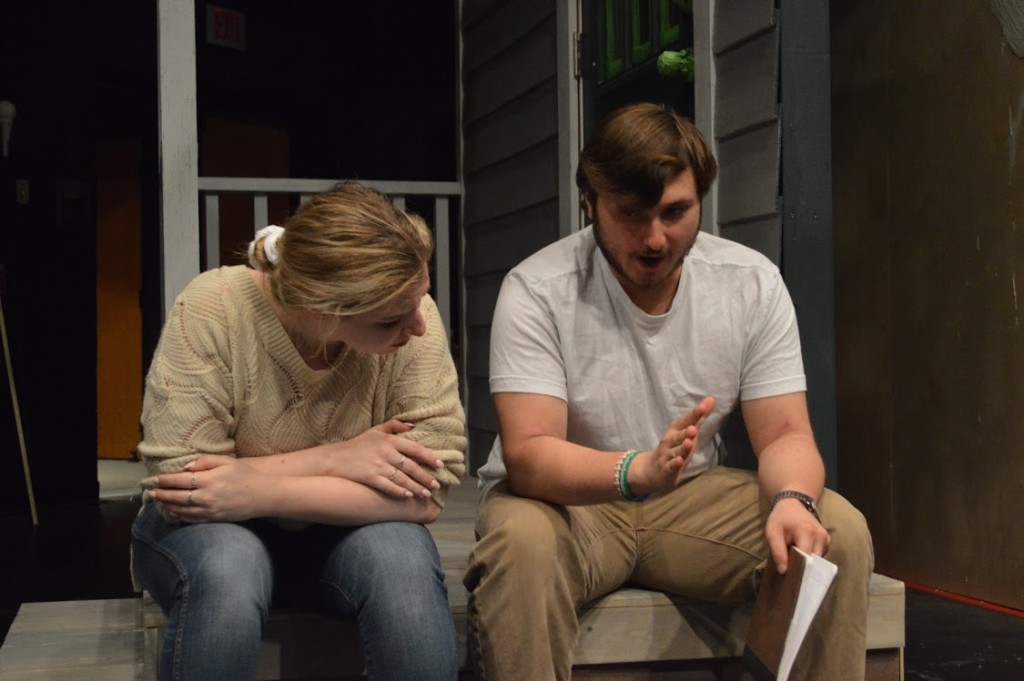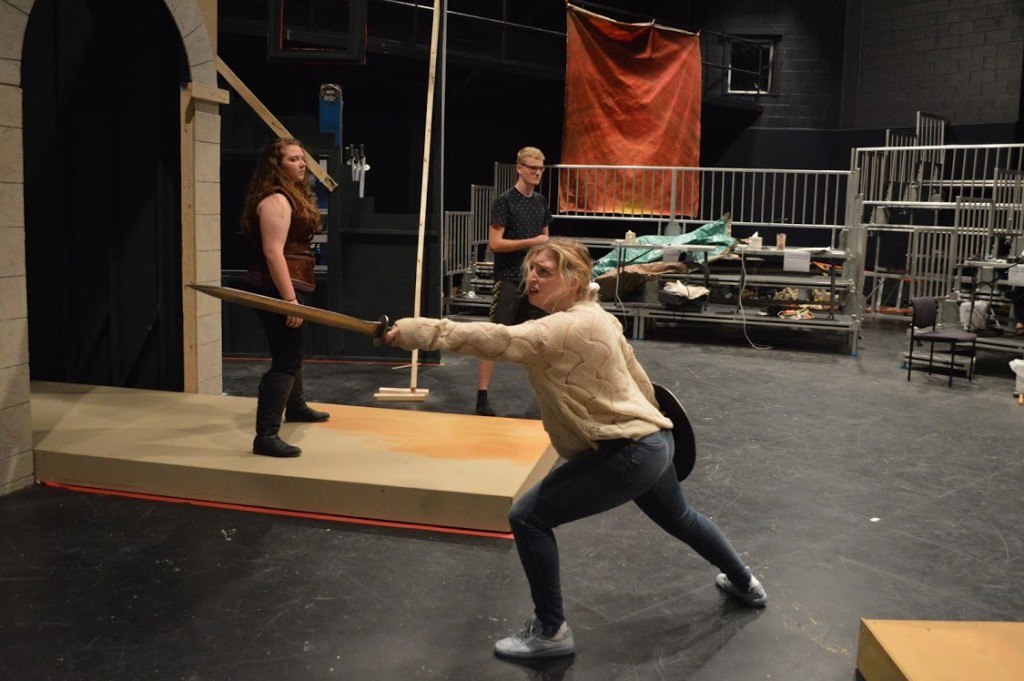Home » Articles posted by Juniata Admission (Page 14)
Author Archives: Juniata Admission
Recent Posts
Categories
ABASM: We Came for the Science and Stayed for the free T-shirt
This past weekend, several Juniata students had the opportunity to present their research at the Allegheny Branch of the American Society of Microbiology’s yearly conference. As a bonus the meeting was held right here at Juniata in the von Liebig Center for Science. The conference took place over the course of roughly thirty-six hours starting from early afternoon on Friday and ending early evening on Saturday. Over the course of those thirty-six hours students from nineteen institutions, both graduate and undergraduate, had the opportunity to learn about a diverse range of topics from distinguished speakers and from one another. There were several unique presentations over the two-day period. The first was a self-mentorship workshop where the speaker guided us through introspective searches into our deepest desires and goals which we later used to help craft a personal mission statement. The next day we participated in a workshop given by a Juniata alumnus that now works at Ecovative, a company that produces biodegradable packaging products with fungus. We even got to take some samples home with us! To close out the conference Juniata’s very own Dr. Belle Tuten, a history professor that specializes in medieval medicine, gave a talk on the methods by which doctors in medieval times used to treat wounds. The subject matter, which was quite humorous by itself, was made even more so by Dr. Tuten delivering her speech as if the medical practices of the past were perfectly reasonable methods for treating diseases.
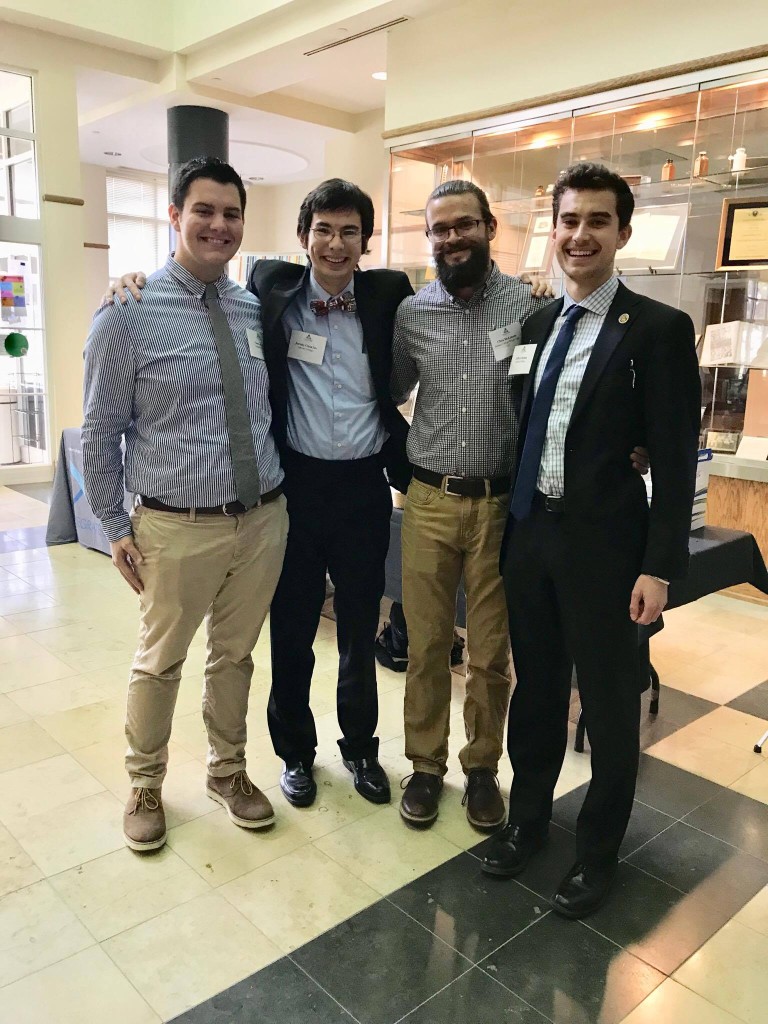
While the workshops and speaker sessions were fun and educational, nothing compared to the student presentations. Although I presented this summer at the Landmark Conference at Susquehanna University, presenting at an actual society meeting had a much more significant feel to it. Sharing my hard work with a room full of people who were just as big or bigger science nerds than me was phenomenal and then being able to sit back down and learn about all the other awesome projects students were working on was just as exhilarating. This conference further affirmed by desire to go into research when I graduate from Juniata this May. I learned so many new things about tools like CRISPR and about how viruses affect fetal brain development, to cover just a few things. This conference increased my thirst for knowledge and understanding about the scientific world and made me that much more excited about graduate school next year.
Of course, none of this would have been possible without the constant support and mentoring by Dr. Regina Lamendella and Justin Wright and their lab. Without them I highly doubt that our lab would have done so well at the conference, and many of us that presented wouldn’t have had as high quality research to present on without their connections and collaborations. There are many labs that conduct undergraduate research on campus. Students can do research in almost every department on campus, and many students present this research at local, regional and national conferences, including the National Conference on Undergraduate Research and our very own Liberal Arts Symposium which we host every Spring.
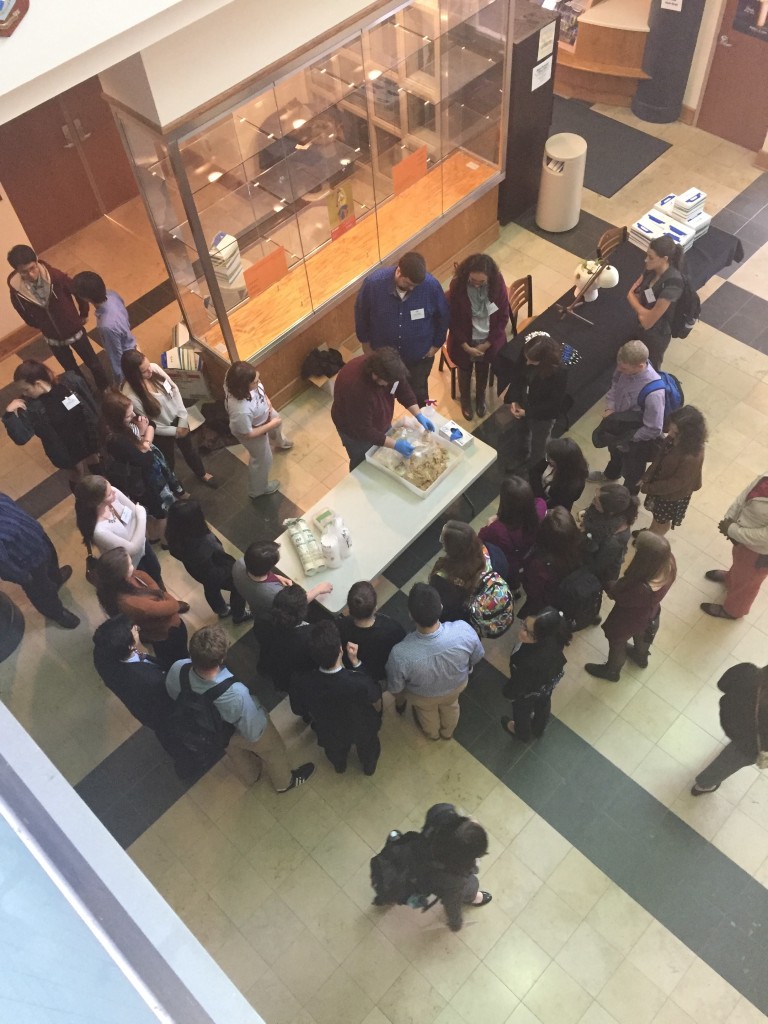
From my experience, albeit limited, Juniata has one of the best programs for undergraduate research. Everyone is encouraged to participate and you can get involved as early as your freshmen year. All it takes is a little initiative, drive to succeed and no small amount of curiosity on your part. Even if you don’t think you’ll like research, I still encourage you to participate. You might find, like me, that you love research and the amazing sense of discovery that comes with it, and find it much more satisfying than being a doctor. Or you might not. It is better to try and not like it, then never try and miss out on an amazing opportunity. Not only that but if you do want to go to med school it looks good if you have done research.
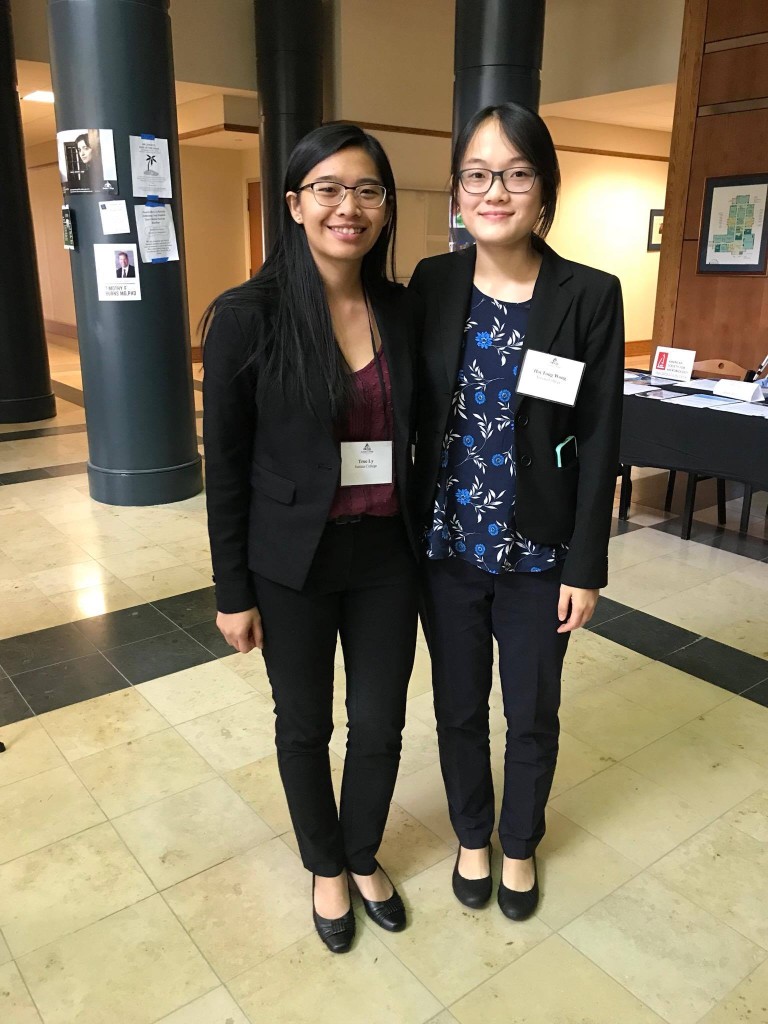
I leave you with this: Research can be difficult. There are days where you will want to pull your hair out because your line of code just isn’t working or your organic reaction has failed for the twentieth time. If you get nothing else out of research, you will at least learn the ability to fail. Yes, the ability to fail. It is an art, one that I am still mastering. Sure, succeeding at everything you do feels great, but you don’t really learn anything from it. Failing teaches perseverance and creativity. Believe me, you do a lot of failing when you first start researching. You learn as you go and slowly, you improve. The quality of your work gets better as does the understanding of your project, and for me, my desire to learn more about what I was researching also increased. It is quite a journey but there is no better place to undertake that journey than Juniata.
“How Did You End Up at Juniata?”
I so often get asked how and why I ended up here at Juniata, in a tiny, little mountain town in the middle of rural Pennsylvania. I grew up in southern Louisiana for most of my life before moving to Singapore for four years, so needless to say Huntingdon is a bit of a change of pace from what I was used to. When it came time to start looking for colleges I knew one thing for sure- I wanted to be somewhere that was completely different from what I already knew, and that’s how I ended up here.
At the time that I visited Juniata I was dead set on coming here, Juniata had been on my mind since early on in my freshman year of high school, so I had been waiting a long time to finally see it. I spent most of the plane ride bouncing in my seat, overly excited and driving my mom nuts. My mom and I got to Huntingdon late in the evening on a weeknight and weren’t going to campus until the next morning, so our plan was just to grab some dinner and look around the area a bit. At first glance, Huntingdon wasn’t quite what I had expected. I had spent months fantasizing about Juniata and what it would be like here, but the town was so much smaller than I had imagined. I was honestly so scared that the place I’d spent forever dreaming about was all wrong for me. That night I lai
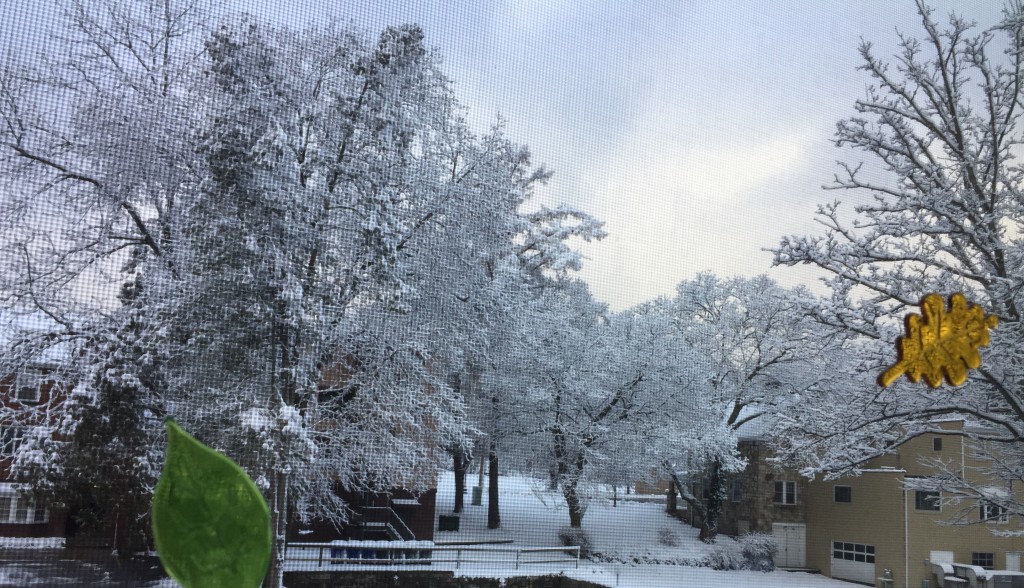
d in the hotel room bed panicking about what I was going to do and it wasn’t until the next morning when we finally got to campus that everything started falling into place.
Pretty much from the second we were on campus my whole mood changed. I had been told by a lot of my older friends that when you found the right college that you would just know, there’d be some magic “click” inside of you and that would be it. I never understood that until I walked onto campus here at Juniata. All of my fears from the night before were gone as soon as I stood in the middle of the quad. As cliché and cheesy as it may sound, something just felt right on campus. Despite how I’d felt before I knew that this campus was my home. Now, a year and a half into my Juniata career I know that I absolutely made the right choice in coming here. This little town that felt so scary at first is now the place where I feel safest and most at peace.
She Kills Monsters
Adventures in the Allegheny National Forest
Last Monday, I went to sleep in a van behind Brumbaugh Academic Center, and woke up in Allegheny National Forest. It was quite the pleasant surprise.
This semester, I decided I wanted to put off taking Macroeconomics on campus, and take Forestry at the Raystown Field Station. I knew it was going to be a little tricky, seeing that classes at the Field Station are an all-day commitment, and Forestry was on Monday. I couldn’t simply drop all of my Monday, Wednesday, Friday classes. Luckily, after talking it through with my professors, they let me off class on Mondays and I was all set to go take a class at the Field Station.
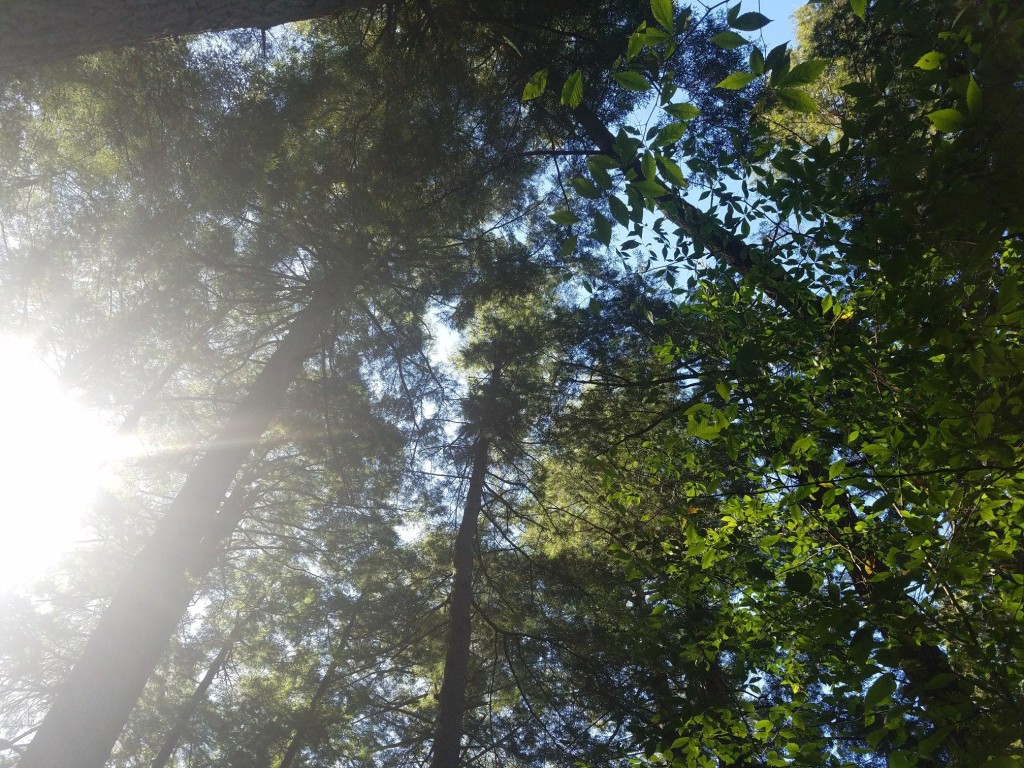
And that’s how I ended up in Allegheny National Forest at 10 AM on a Monday. We started off the day with a lecture on the history of the forest and its current uses. Our lecturer was a part of the research division of the National Forest Service, where they test regeneration, silvicultural (growing trees as crops) practices, and any other research question they can imagine.
After our morning lecture and a quick lunch, we were off to a very famous part of the forest: the Tionesta Forest.
This forest has been untouched by the hands of humans for over 400 years. It was originally dominated by beech and hemlock trees, but many of the trees were blown down in a storm 40 years ago. Now, beech bark disease and hemlock wooly adelgid (both forest pests which kill those species), seem to be slowly changing the composition of the forest. Because of the struggles these species are facing, it is unknown if they will ever grow to such monstrous proportions again, at least in this area. It was incredibly cool to see these giants in person – my arms didn’t even reach halfway around the trunks of some of the trees.
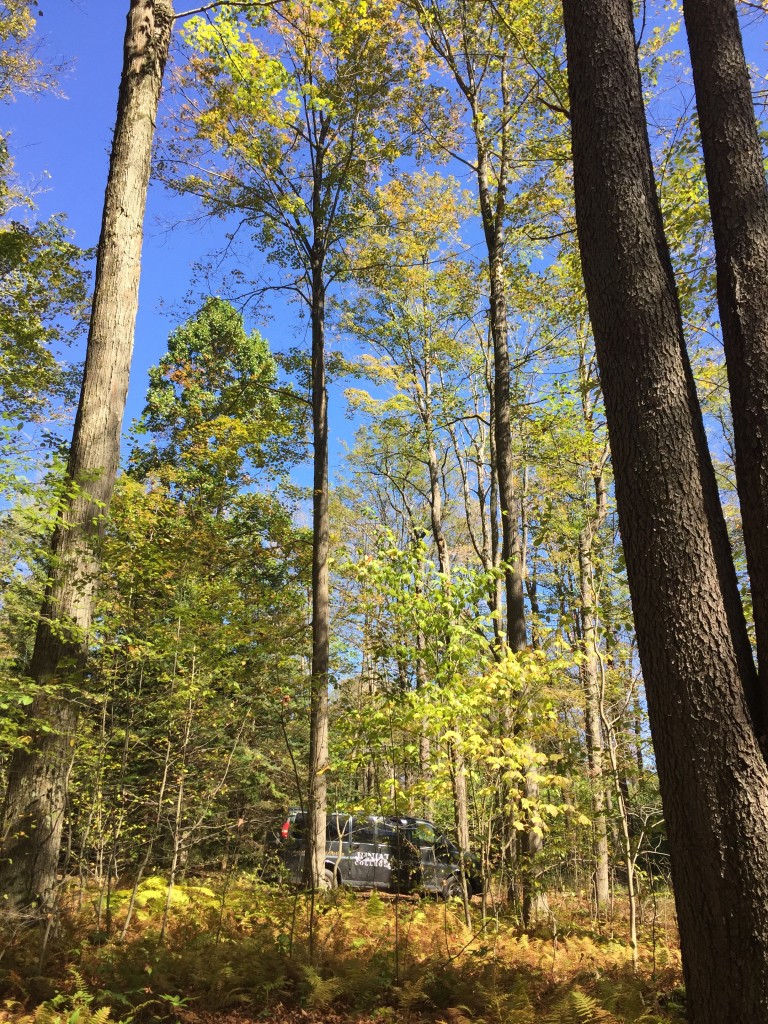
As the day finished up, we packed back into the vans to leave. It was a busy three-hour ride back to campus with a Sheetz stop, hair braiding, and napping. There is always plenty of napping on the long van journeys.
This week, I will be setting off on another long journey with the Forestry class. We are taking a week-long tour of forests in New England, and I couldn’t be more excited. I knew classes at Juniata could take me amazing places, but this course has been even more incredible than most.
Chilling Revelations from a Nobel Laureate
A few weeks ago, Juniata was visited by a very special guest, Dr. Bill Phillips of the Juniata College graduating class of 1970 and one of the 1997 Physics Nobel Laureates. Despite his huge success in his field, Dr. Phillips has not forgotten where he got his start, a small Liberal Arts college nestled in the hills of central Pennsylvania. Dr. Phillips comes back every four years to give talks about physics and to interact with current Physics students, and others as well. I’m sure he has many reasons for why he does come back, but I’d like to think that he mainly does it to inspire younger generations, to instill within them a belief that they can do anything and go anywhere with hard work and the right attitude.
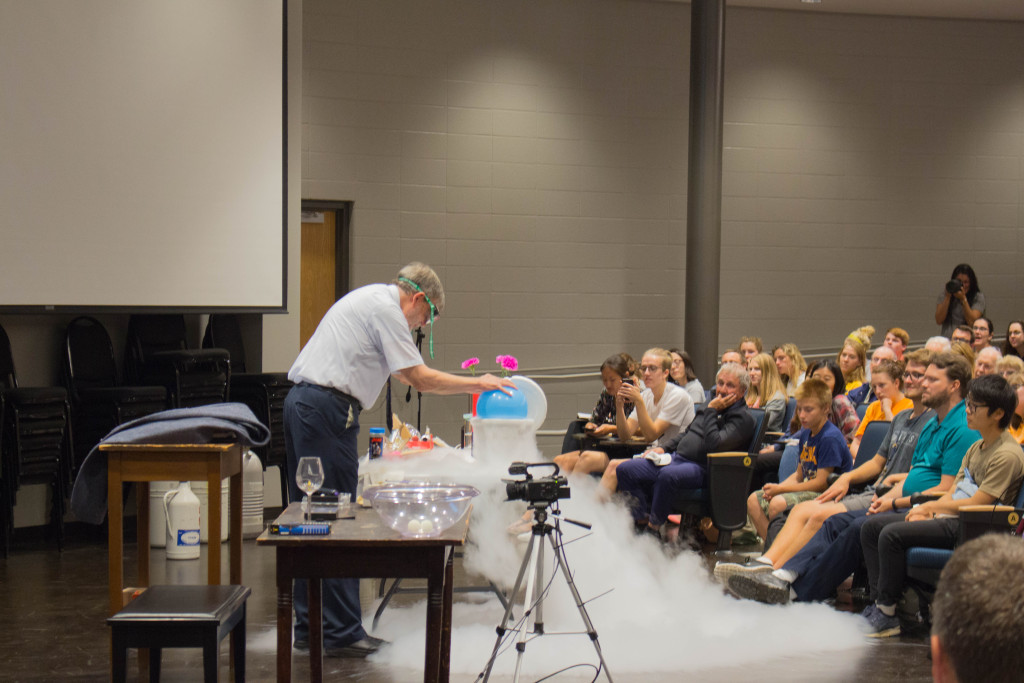
His own attitude is one of positivity and an almost childlike sense of curiosity and fascination with physics, even after a lifetime of in-depth study. His energy and enthusiasm was contagious and I found myself excited for each new physical property that he introduced, despite my small amount of disdain for the field of physics. He bounced from one side of the stage to the other, always talking, his hands always moving as he described the intricacies of time and its relation to the coldest temperature ever recorded. During the talk, I roamed through the crowd and behind his presentation setup taking pictures of his talk. I captured liquid nitrogen being poured, ad libitum, on the floor and up the aisles of the lecture hall and I watched as the 77 Kelvin (really freaking cold) liquid nitrogen shrunk twenty or more fully blown up balloons down to a size small enough to fit them all into a bait bucket approximately one gallon in size.
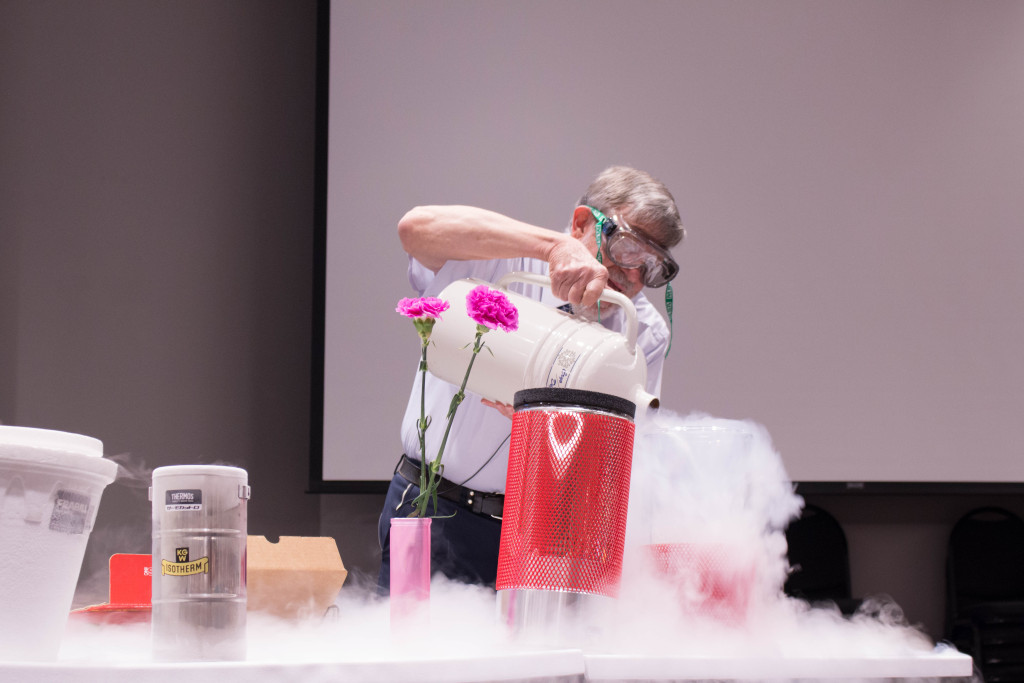
Smashing frozen solid rubber balls into oblivion on the black concrete floor of Alumni Hall in our very own Brumbaugh Academic Center was cool (pun intended) to watch, but more fascinating was watching the crowd. Each face lit up with excitement as they watched each new demonstration. By far the most interesting faces to watch were those of the professor emeriti, those scholars and teachers that have retired from Juniata, several of whom taught Dr. Phillips when he attended Juniata. Their stoic faces broke into easy smiles with each joke and one was even giddy with excitement with each new revelation of a physical phenomenon. And the best moment of them all was when a water bottle filled with liquid nitrogen and placed under a trashcan, exploded launching the trash can up in the air causing the entire audience to jump and my heart to stop for a few seconds.
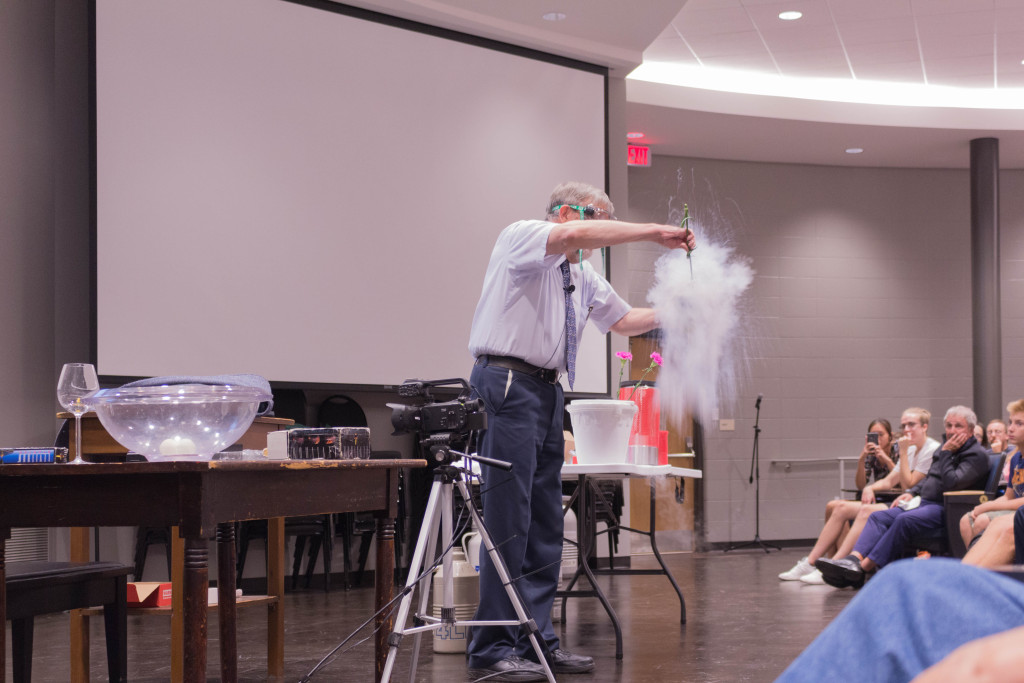
Bill Phillips most influential contribution to this campus did not come in his relation of physics to students of his alma mater, but in an answer to a question from a young audience member after his talk had concluded. The student asked what, if anything he would tell his younger self. He answered by telling a story of a time during his junior year at Juniata College when a physics professor from Princeton came to give a talk. During the question and answer portion the Juniata students asked about graduate school and getting into Princeton and the speaker gave the rather flippant answer that no one from Juniata could ever get into Princeton.
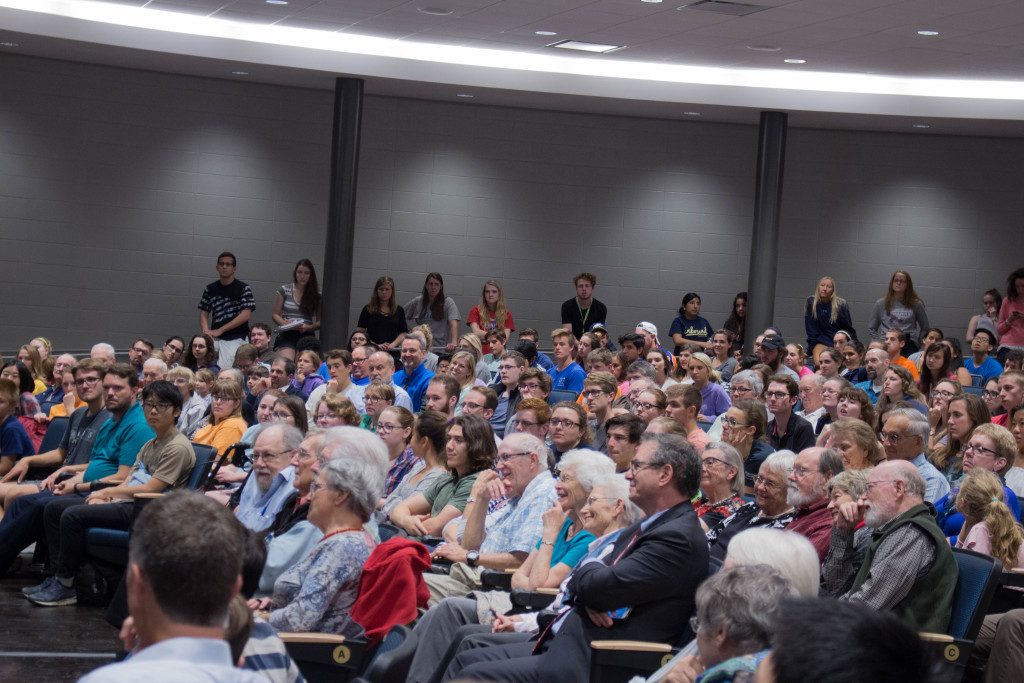
Bill Phillips took that information and proceeded to ignore it as he not only applied to Princeton, but also Harvard and MIT. His overarching point with the story was to not let anyone ever sell you short, especially if you are a Juniatian. That really hit home for me as I am now applying to graduate school and worrying if I will get accepted. What I tend to forget is that here at Juniata we are almost over prepared for our futures. If you choose to come to Juniata for the four years of your undergraduate study you are sure to embark on a difficult journey. Fun? Absolutely! Fulfilling? Of course. Difficult? Definitely. But we are better students and people for having gone through those difficult times.
Even if you are not a Juniatian now and even if you never will be. Remember to never let anyone sell you short. Show them what you can do and prove them all wrong. You might be surprised how far you get. Maybe you’ll even win a Nobel Prize.
You can find the video mentioned in this blog at: https://www.youtube.com/watch?v=HzESTv7ohhY

